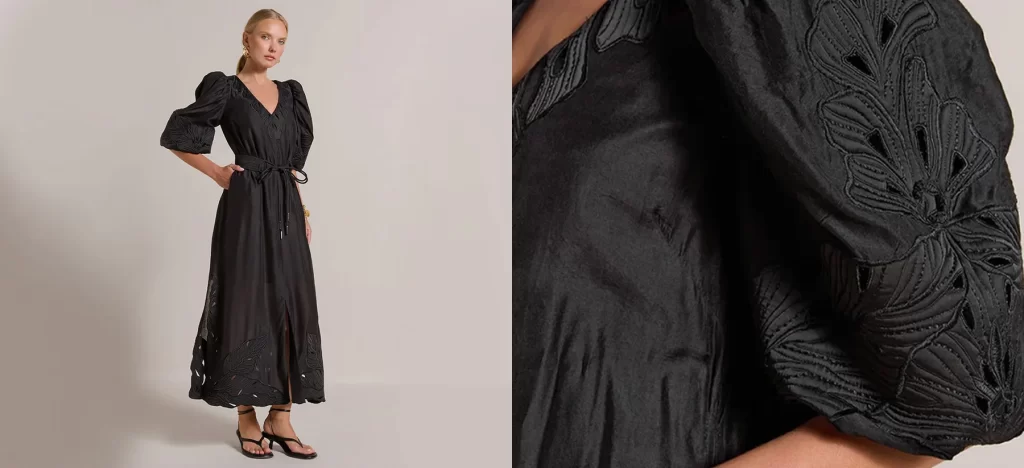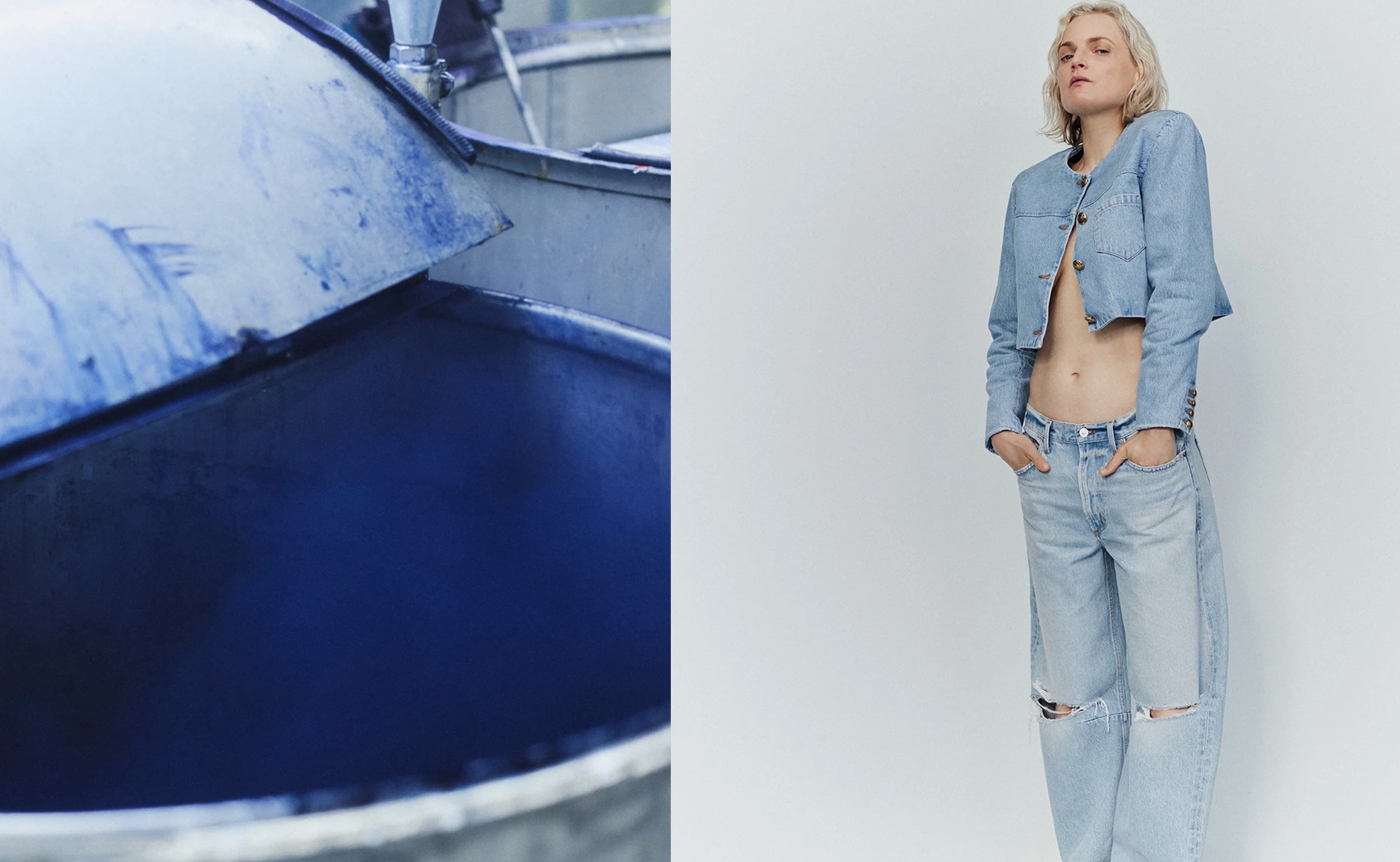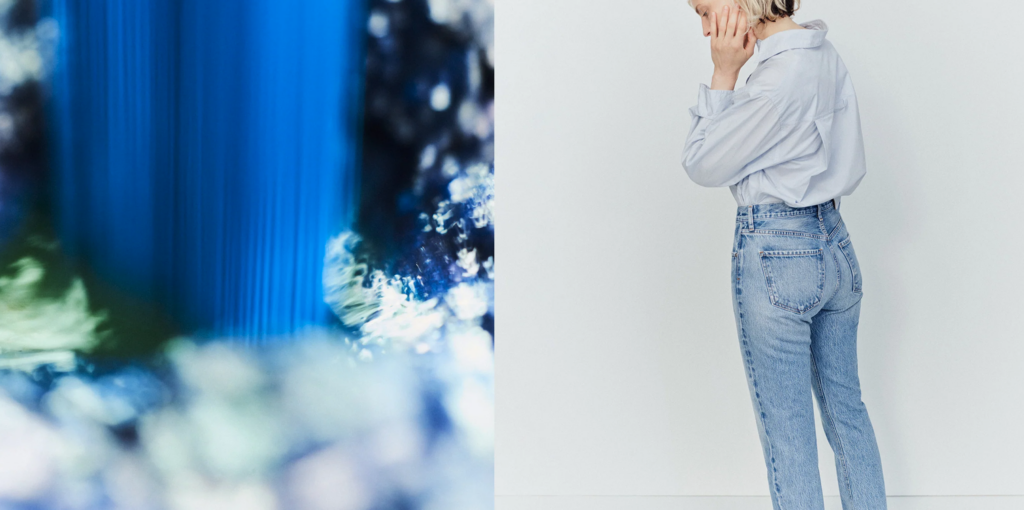According to Greenpeace International, the production of textiles is responsible for 20% of the world’s water pollution. Denim in particular is a seriously thirsty material to manufacture.
Denim is also white (as it’s cotton) so in order to get it that blue shade we all know and love, it is dyed using indigo (a natural substance), but indigo, whether natural or synthetic, does not dissolve in water to become liquid dye. Instead, it must be altered using carcinogenic and harsh chemicals that bind the dye to clothing fibers, the waste water of which is then washed into local rivers polluting their ecosystems.
There is a growing need to develop more environmentally friendly techniques. A few ways in which denim can become more sustainable includes; using organic cotton – which can be farmed with less water and fewer fertilizers and pesticides, reducing the environmental effect. Also developing a biosynthesis of indigo is an important route for reducing denim’s carbon footprint.

Citizens of Humanity and AGOLDE are working to source sustainable fabrics which will lower the impact on the environment, including;
Regenerative Cotton
Regenerative farming cultivates a healthy relationship between cotton plants, the soil, and the Earth’s atmosphere. These specific farming methods focus on soil health, carbon sequestration, and soil biodiversity. By implementing regenerative farming techniques, farmers are able to reduce carbon emissions and restore soil health, both of which allow for greater crop yields and lend a hand in the fight against climate change.
Recycled Cotton
After a garment has reached the end of its lifecycle, the material can be recycled. Material recycling is a multi-step process where used garments are sorted by material, shredded into smaller pieces, and cleaned. Now clean, the fibers are re-spun into a new blended recycled cotton yarn that will be used for the creation of new fabrics. This reduces the carbon footprint accrued by farming new cotton.
Indigo Technology – Eco Indigo
Currently, 99% of all colors rely on fossil resources. The textile manufacturing industry, one of the largest consumers of color, uses 2 million tons of dyes annually. KITOTEX® and INDIGO JUICE® technologies reduce the amount of water, chemicals, and energy in the production of yarns. Together they save 15% water, 33% chemicals, and 25% energy compared to conventional dyeing processes. Citizens of Humanity Group now integrates Eco-Indigo into its production processes. Eco-Indigo is an innovative bio indigo dye created by Pili, a French biochemicals company.






